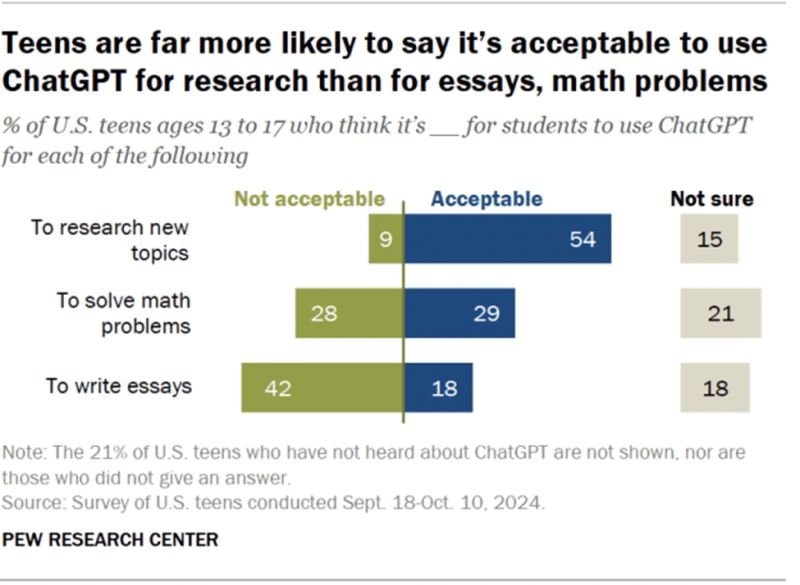New Pew Study Reveals Growing Teen ChatGPT Use
A new survey of 1,391 teens aged 13-17 conducted by Pew Research Center sheds light on how American teenagers' think about and use ChatGPT.
Comparing data from similar research conducted a year prior, the findings demonstrate a growing awareness of GenAI technology among teens and nuanced attitudes about its appropriate use in academic contexts.
KEY HIGHLIGHTS
Awareness and Usage:
78% of teens have heard of ChatGPT (up from 67% in 2023)
White teens (83%) are more likely than Black (73%) and Hispanic teens (74%) to say they’ve heard about ChatGPT
Teens from households with higher annual incomes are most likely to say they’ve heard about ChatGPT (84% in households earning $75k+, vs 67% for those below $30k)
Twice as many teens overall have used it for schoolwork (26% now vs 13% in 2023). And the more familiar they were with it (i.e., heard “a lot”), the more likely they were to use it for schoolwork (56%).
Older students were more likely to use it than younger ones (31% of 11th & 12th grade vs 20% of 7th & 8th graders
Black and Hispanic teens (31% each) are more likely than White teens (22%) to say they have used ChatGPT for their schoolwork.
Perceived Acceptability of Different Uses:
68% consider it acceptable for researching new topics
Only 23% consider it acceptable for writing essays
Respondents were split about using ChatGPT to solve math problems: 37% find it acceptable, 36% unacceptable
While educators, parents, and policymakers are grappling with how to integrate AI tools into education while maintaining academic integrity and ensuring meaningful learning experiences – teens are already making nuanced choices and increasingly using the AI tools available to them.
Which means, we need to prioritize talking to students and building their AI literacy now.
Read the study to check out the data, study methodology, and the complete analysis from Pew.

